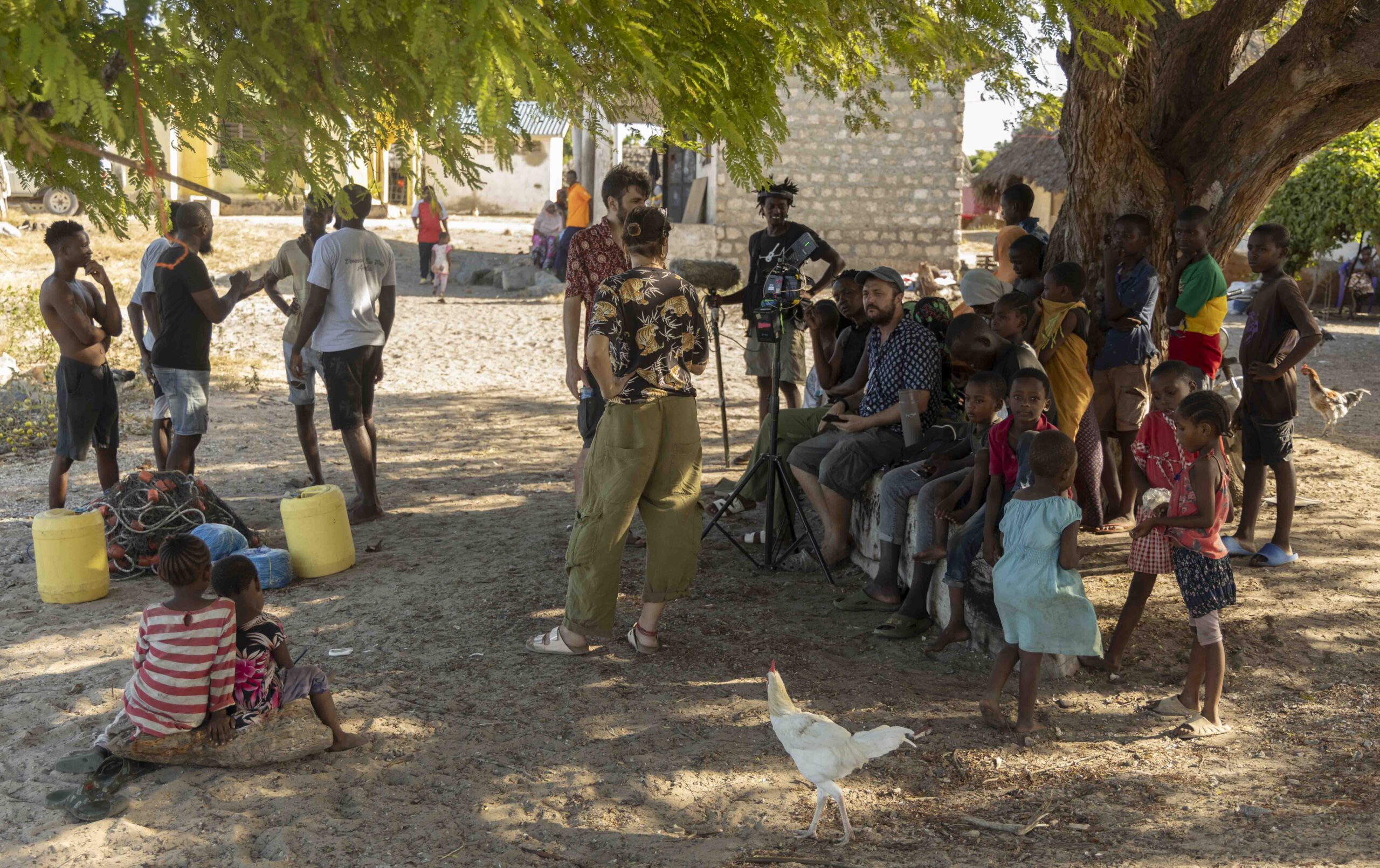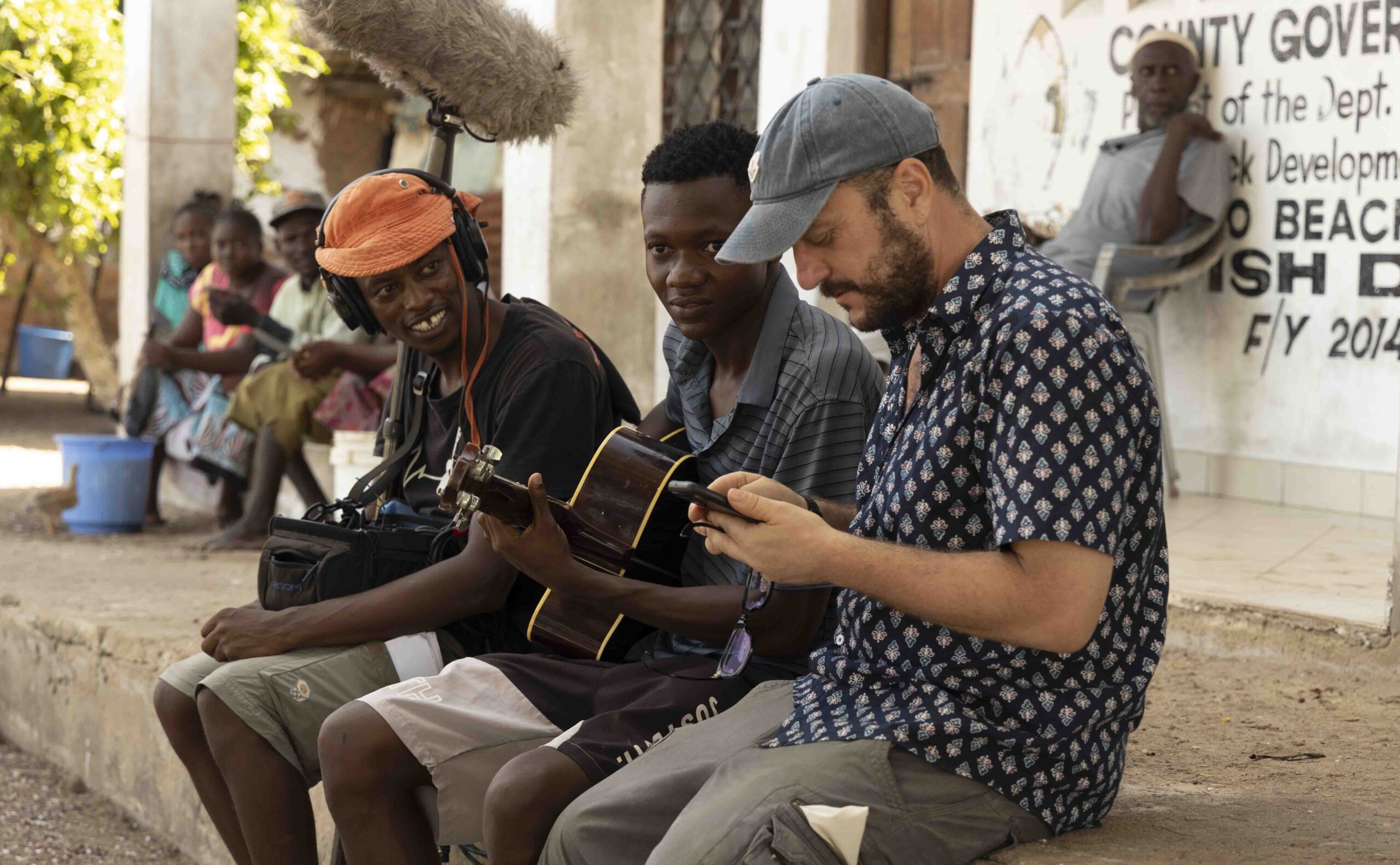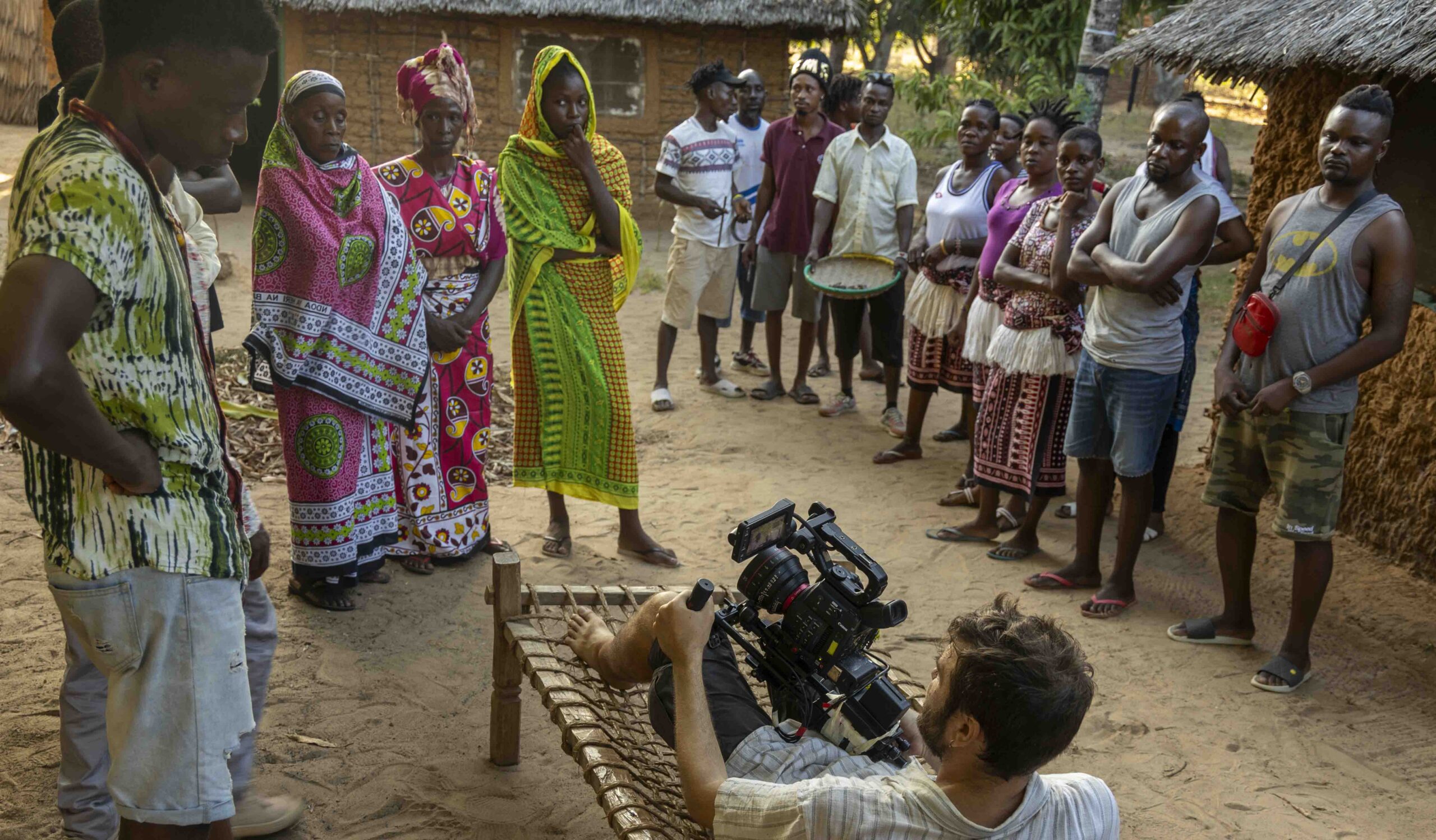Boti Tatu: A Participatory Film inspiring Kenya’s fishing communities to drive change – Sometimes cinema can touch us deeply; other times, it can amaze, teach, or raise awareness. At times, it can even promote change, tell stories of growth, and demonstrate the value of collaboration toward a common goal.
This is the spirit behind the creation of the film Boti Tatu. The project was born from a collaboration between the Italian Agency for Development Cooperation (AICS) in Nairobi and Cultural Video Production (CVP). Together, they worked with fishing communities in Kenya to cocreate a film that addresses shared challenges and encourages new, practical solutions. The aim was to craft a story that resonates both with the film’s protagonists and its audience – a story that speaks their language and inspires them to act.
The initiative was funded by the European Union (EU) as part of the Go Blue cooperation initiative, a comprehensive program for the development of the blue economy in Kenya, which concluded in November 2024. Boti Tatu tells a story inspired by the experiences and challenges faced by the fishing community of Uyombo, in Kilifi County. The film, produced in Swahili and Giriama to ensure maximum accessibility for local communities, is narrated by Mr. Bado, a musician from Malindi and a pioneer of mwanzele music in Kenya.
The Director’s Vision
Boti Tatu was directed by Vincenzo Cavallo, an Italian filmmaker and advocate of participatory videos, founder of the CVP company that realized the movie with the guidance of the producer Ms. Silvia Gioiello, and with the support of Ms. Tracy Sandere, Cultural Mediator.
Cavallo draws inspiration from the Fogo Process, a transformative approach developed in the late 1960s in Fogo Island, Canada. This method used participatory video as a tool for community-driven development, enabling isolated fishing communities to recognize shared challenges, foster collaboration, and present their issues directly to policymakers who were often distant and inaccessible. Through this process, media became a powerful medium for dialogue, uniting communities around common goals and bridging the gap between local voices and decision-makers.
In Boti Tatu, Cavallo applied this vision by actively involving the fishing community of Uyombo in every stage of the project. From identifying key issues to script development and post-production, the community’s voice was central to shaping the film. This collaborative process ensures that the story resonates with both the local audience and the wider public, inspiring unity and collective action. For Cavallo, participatory filmmaking is not just about storytelling—it’s a tool for empowering communities to reflect on their realities and work toward sustainable solutions.
AICS cooperation goals
The idea of using an innovative and participatory communication method originated with AICS, who recognized the importance of fully engaging the communities involved in the Go Blue project. “This is not just a film but an educational and discussion tool for coastal communities. It entertains while inspiring collective action to address some of the common challenges of artisanal fishing and sustainable resource management,” comments Ms. Valeria Buoninfante, Deputy Head of the AICS Office in Nairobi.
The vision is to highlight and discuss the power dynamics that drive the success or failure of any project and its activities, because to ensure effective co-management of the provided equipment, the fishermen’s families and the whole community must take action – ultimately, leaders need to be led.
After a series of initial meetings with AICS, the CVP team conducted extensive fieldwork, holding dozens of meetings with fishers community to delve into their internal dynamics and daily challenges. The fishermen of Uyombo were actively and immediately involved in the research and script development, as well as in identifying the issues to address and the messages to convey. Their feedback was even integrated during the post-production phase. According to Martina Bolognesi, AICS Communication Officer who first saw the potential of such an initiative, another interesting aspect of this experience is that the film was entirely shot with non-professional actors, most of whom come from Uyombo or nearby, including the narrator.
A story of collaboration
The story revolves around internal tensions within a fishermen’s cooperative that is suddenly gifted three boats by the government (Boti Tatu means “three boats” in Kiswahili). The community gathers to decide how best to use them but quickly splits into opposing factions, each pursuing its own interests without considering the collective good. It is only when the youth decide to take matters into their own hands that dramatic consequences unfold.
The message of Boti Tatu – rooted in the real experiences of fishermen and fictionalizing some dynamics observed during the Go Blue program – is about working together because unity is strength: Umoja ni nguvu, as the final screen of the film declares.
Between October and November 2024, AICS organized a series of Boti Tatu screenings in the form of open-air cinemas in the fishing communities where the Go Blue program was implemented, across the counties of Kwale, Mombasa, and Kilifi. The screenings reached over 1,000 people. Each screening was followed by short discussions with local communities, during which the messages of the film were debated, and fishermen shared their perspectives and experiences on the themes addressed.
On 20th February 2025, #BlueLifeHub, in collaboration with #CoastalCommunityNetwork, will host an online screening of Boti Tatu.
📽️ For the screening you will watch the film here: https://us06web.zoom.us/j/85154651661?pwd=vfhATrN7b8ldpH5Xdt2T59XUWtxLlF.1
ID meeting: 851 5465 1661
Pass Code: 306358
Boti Tatu: A Participatory Film inspiring Kenya’s fishing communities to drive change












